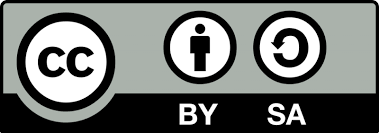The external evaluation and its implications. Technical, practical and ethical aspects
Downloads
Abstract
By Ramón Pérez Juste, Professor at the National University for Non-Attendant Students and President of the Spanish Society of Pedagogy.
The present article, focused on external evaluation, has been written on special request of the magazine Managing Board.
The author's outlook upon evaluation in pedagogical contexts regards evaluation as an essentially formative procedure, and, consequently, a type of permanent formation, focused on the improvement of every human segment with a part to play in Education, such as teachers, managing boards, families, staff at school and even students themselves as they realize their personal concern in their own qualification process.
External evaluation must facilitate functions of control, accountability and permanent educational benefits to people with responsibility in educational systems or educational organizations. When so, external evaluation gains importance and defines itself as a kind of evaluation carried out by highly-experienced professionals whose duties must start by checking out the fulfilment of professional ethics and technical requirements which, in most cases are included in evaluation quality standards.
The author suggests the convenience of setting a frame for external evaluation, with the aim of producing in the first place organizations committed to a permanent learning process, secondly, a tendency to unify external models, whenever it is possible, and finally, an approach between the latter and evaluating frames of educational organizations. According to him, this would facilitate an optimisation of funds and human resources, which would eventually contribute to the improvement of people, institutions and the educational system.
How to Cite
Issue
Section
Published
License

Attribution Share-Alike CC BY-SA
Those authors who have publications with this magazine, accept the following terms:
A) The authors will retain their copyrights, which will be simultaneously subject to the Creative Commons Attribution License that allows others to re-mix, modify and develop on your work even for commercial purposes, provided they credit you And to license their new works under the same terms.
B) The authors will retain the rights of exploitation of the intellectual property of this work, and especially the rights of reproduction, distribution, transformation in any of its modalities and public communication of said work, which will be simultaneously subject to the License Of recognition of Creative Commons that allows others to re-mix, modify and develop on your work even for commercial purposes, provided they credit you and license your new works under the same terms.
Creative Commons Attribution-ShareAlike 4.0 International Public License

